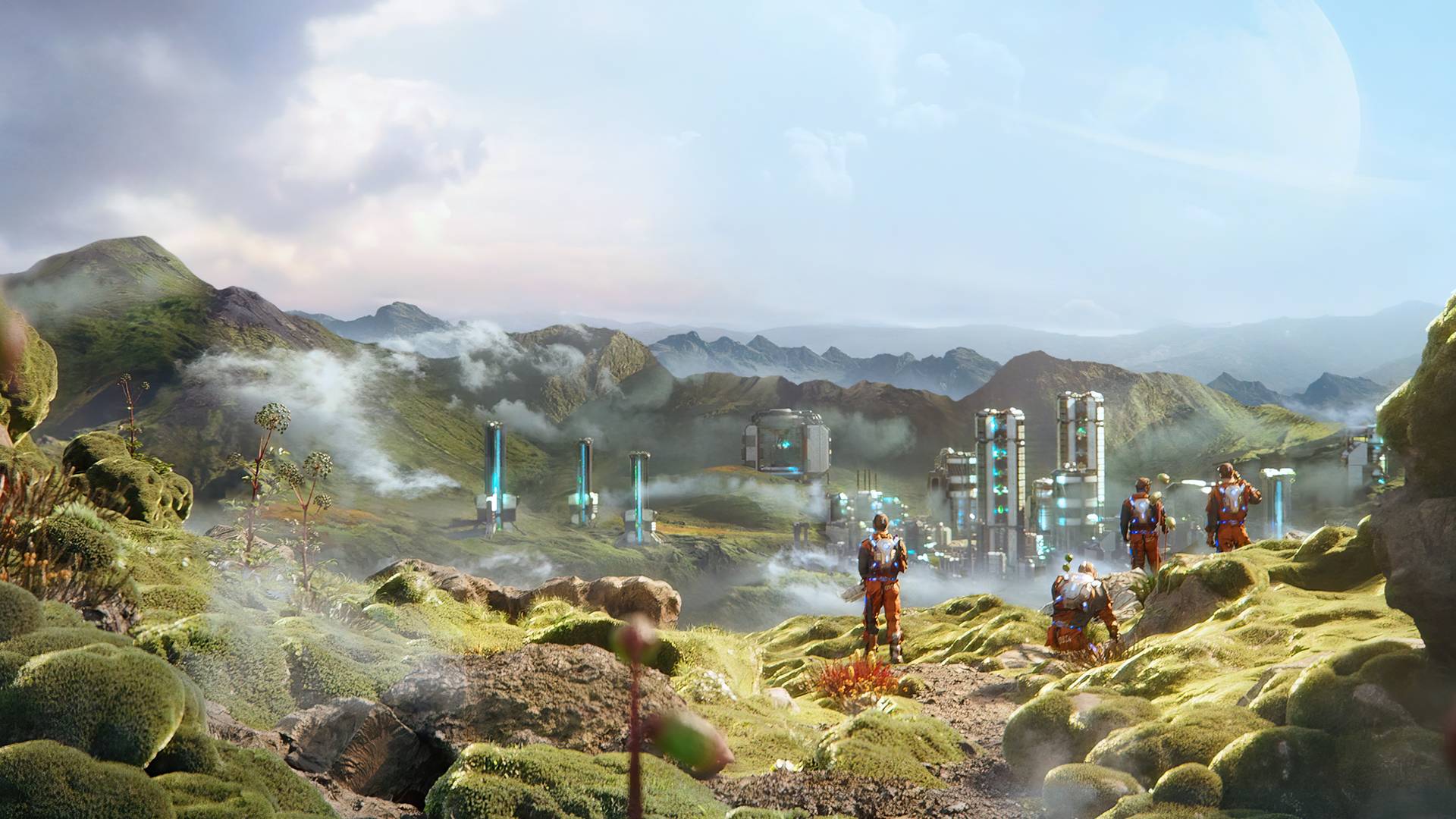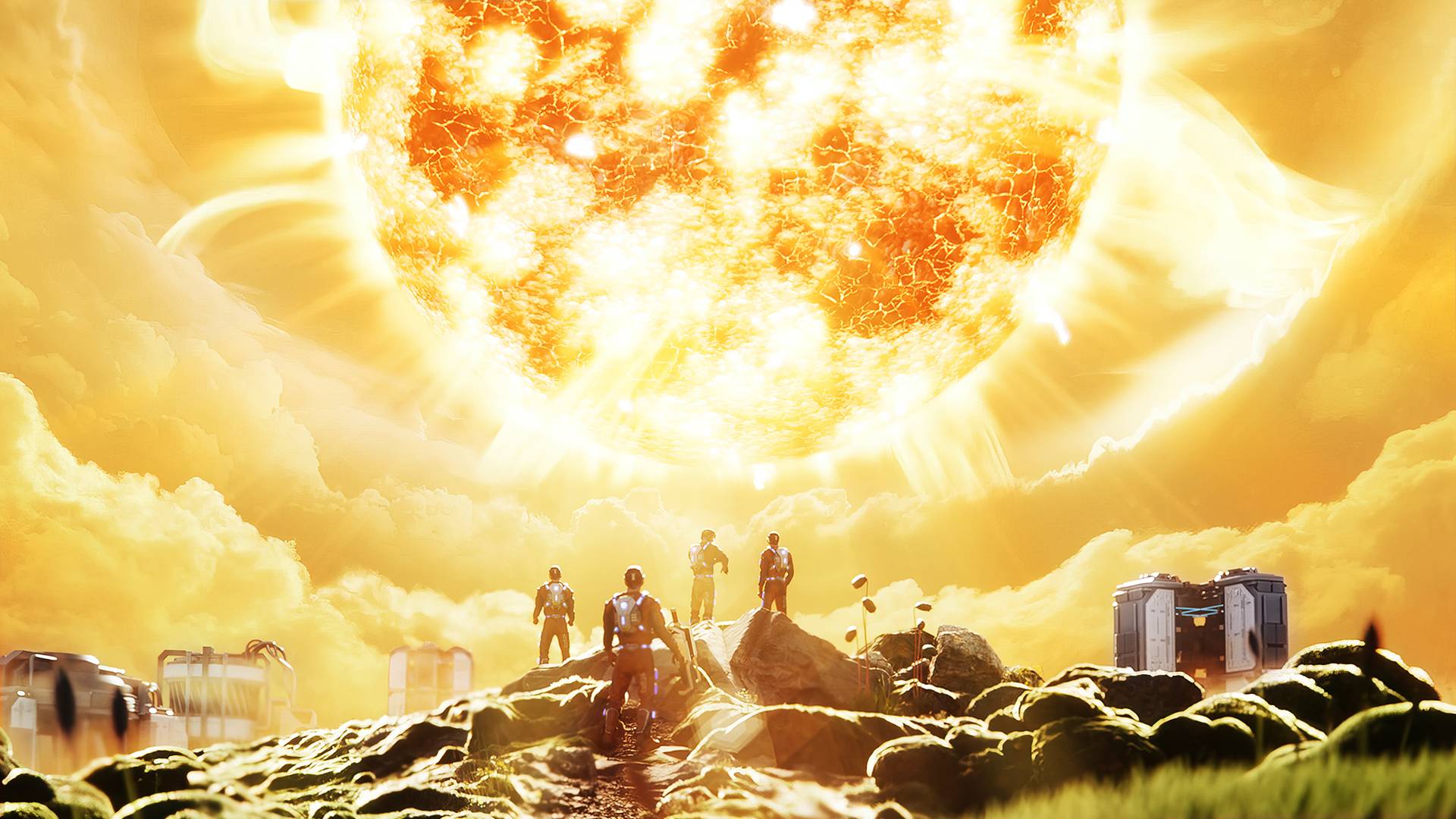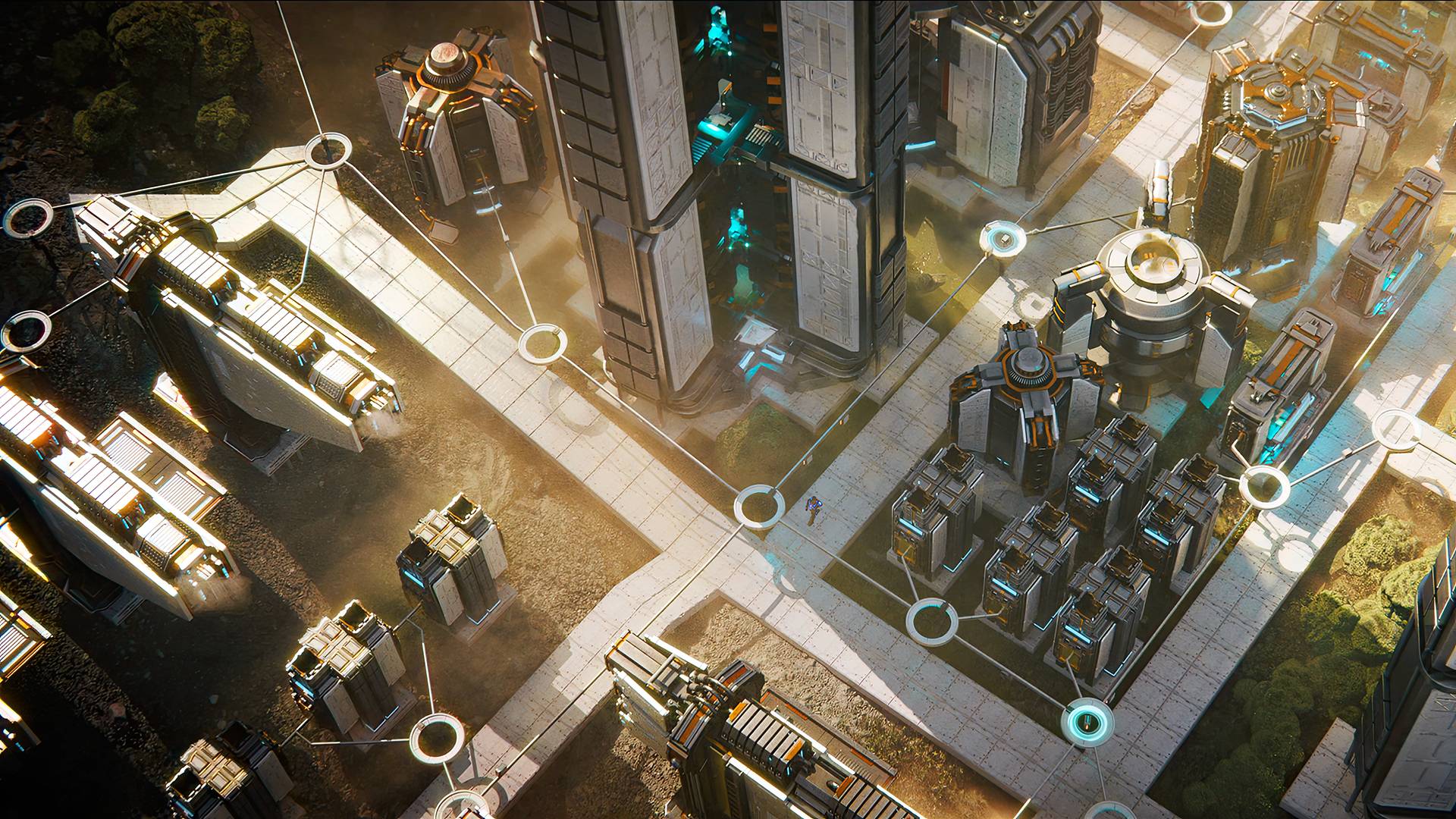Chimera is a survival sim that makes Mother Nature your cataclysmic frenemy
The Green Hell devs are back with a bigger focus on base-building.

Chimera takes us to an extraterrestrial planet that’s ripe, we’re told, for industrial exploitation. Having last dropped us deep in the Amazon jungle to test our wits and endurance in Green Hell, developer Creepy Jar has set its sights further afield for its next foray into survival simulation. Chimera looks suitably alien, with its bizarre creatures and plant life, but it might be a touch more homely than the rainforest back on Earth. In a far cry from the predatory animals, tropical diseases, and risk of starvation that threatened us in Green Hell, this exoplanet’s main hazard is a little more ordinary. How bad can a spot of poor weather really be?
“We felt that the game environment [in Green Hell] was a bit static in terms of weather,” game director Michał Stawicki says. “The Amazon rainforest can't have a snowy winter, after all. This was the main driver that led us to the idea to create a dynamic environment that’s beautiful but at the same time burdened by extreme elements like fire and ice. To create a space where the player can deal with an ever-changing environment and adapt to its conditions.”
The scale of those environmental changes sells the danger of this unexplored landscape. Stepping into the shackles of an exiled convict sentenced to a life expanding the industrial production of the planet, you won’t need to be a meteorologist to notice the violent weather cycles that regularly sweep across its surface are more than an incoming warm front. Chilling ice ages and fiery infernos are regular appearances here. They’re as destructive as you might imagine: freezing and charring plant life, displacing animals, and turning your colonial structures to ash if they’re not adequately protected.
“But the next thing we want players to see is the opportunity that comes with it,” Stawicki says. “The environment has changed. New resources and paths are now temporarily available, encouraging you to leave the base and explore this dangerous world.”
The key is preparation. It’s our survival element, not only for the player but for the base itself
Michał Stawicki
These natural cataclysmic events will be as productive as they are destructive, changing the world around you in ways that could help you expand your central base. Habitats may burn down to make way for new ones or previously covered resources left exposed. Of course, surviving to take advantage of the changing world is up to you. Food needs to be stored to see you through the harshest periods or plantations constructed that can protect crops from outside threats. The machines running these production processes, too, might need modification - like extra cooling systems - to prevent them from buckling under intense heat and cold.
“The key is preparation. It’s our survival element not only for the player but for the base itself,” Stawicki says. “We want to shift the focus of survival from the unit to the entire base. You cannot survive without your base, just as your base cannot survive without your supervision. The player will have to create machines that mine, harvest, create, assemble, and protect them and their base from destructive elements and enemies.”

If you don't want to leave the safety of your base, it's entirely up to you. The world of Chimera is waiting to be discovered - its riches and its dangers
Michał Stawicki
It paints a more honest picture of nature than the innately violent, deadly worlds that are out to destroy the player in so many other survival games. Chimera’s is not so much hostile as ambivalent - lethal at times but bountiful in others. As such, the game looks to be as much about adapting your pace to the elements as surviving them.
Keep up to date with the most important stories and the best deals, as picked by the PC Gamer team.
Green Hell earned a reputation among survival fans for being particularly brutal, but Chimera, Stawicki says, won’t be as unforgiving. “You won’t die so often!” Stawicki says. “The player will dictate the pace of the game. If you don't want to leave the safety of your base, it's entirely up to you. The world of Chimera is waiting to be discovered - both its riches and its dangers - and you can explore it at your own pace.”

Not only do the elements threaten you: alien monsters and flora are rampant on Chimera. However, as your base grows and its technological capacities develop, so will its ability to withstand the hostilities of the planet. And, here, too, the weather isn’t so simple as an enemy. It can wipe out the dangers of a particularly virulent alien knotweed or a population of space rats.
“Plan and build defense systems against both enemies and the deadly cycles,” Stawicki says. “And when that happens, it's about deciding what is worth protecting and what can be lost.” We’d usually suggest losing the winter months, but in Chimera’s case, a few cold spots now and then might be just what we need.

